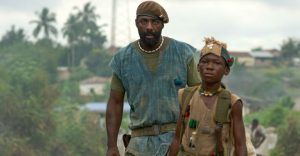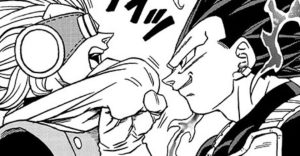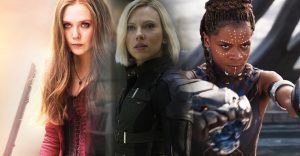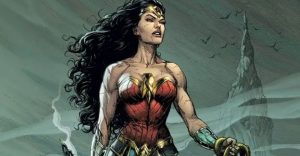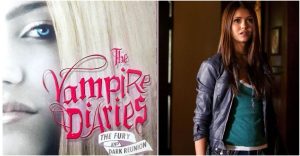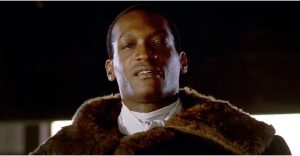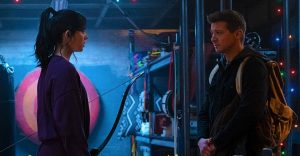Stephen King: What Went Wrong With The Dark Tower Movie

2017’s The Dark Tower failed to hit the mark in theaters, and a few factors contributed to why the movie went so wrong. One of many Stephen King adaptations in the past few years, The Dark Tower stars Idris Elba as the otherworldly gunslinger Roland Deschain, who originates from another realm known as Mid-World. When a kid from New York City named Jake Chambers (Tom Taylor) finds himself transported through a portal to Mid-World, he’s along for the ride with Roland in his quest for revenge on The Man in Black (Matthew McConaughey). The villain, meanwhile, is determined to gain control of the mythical Dark Tower that rests at the heart of not just Roland’s universe, but all universes.
Rather than being adapted from the books directly, The Dark Tower acts as a continuation of the series, which is comprised of seven novels, one tie-in book, and one short story. Despite the promise that the film had with the source material it was drawing from, The Dark Tower proved to be a box office disappointment. The film also saw a generally unfavorable reception, with much criticism stemming from the movie’s mishandling of the novel’s stories it was seeking to continue.
Ultimately, The Dark Tower‘s franchise plans faltered in light of its underperformance. Considering how central The Dark Tower series is to King’s entire body of work, it was an unfortunate outcome. At the same time, the fact that The Dark Tower is such a quintessential series of books in Stephen King’s bibliography also helps explain several of the key failings that afflicted The Dark Tower movie. Here’s what went wrong.
The Movie Botched Its Portrayal Of Roland

Casting Idris Elba as Roland Deschain was one of the decisions made in The Dark Tower that was a smart call. Indeed, Elba’s portrayal of Roland was among the more commended aspects of the film. However, the movie itself gave him precious little to work with. The film is really less Roland’s story than it is Jake’s, and while that might’ve been intended as a way to use Jake as an audience proxy, it backfired in a big way. The Dark Tower essentially stripped its signature protagonist Roland down to a generic gunslinger with a mysterious past. This trope having been done to death already in innumerable Westerns, King creating Roland as more of a knight in a gunslinger’s garb left a lot of Roland’s most unique character traits unexplored.
Worse, the film’s portrayal of Roland boiled his motivation down to a very basic revenge plot against The Man in Black. At one point, Roland even expresses disinterest in getting to the Dark Tower and instead indicates his primary motivation is to get vengeance on The Man in Black. In the book, finding and protecting the Dark Tower is Roland’s raison d’être, his sole motivation and the thing around which his entire existence revolves; his single-minded determination to reach the Tower in the novels is what defines him. The movie betraying the core of his character with a weak revenge story was tantamount to Spider-Man saying he no longer cared about being responsible, and longtime Stephen King fans and lovers of the Dark Tower books were left baffled by the decision. Despite the strength of Elba’s performance, the writing completely botched Roland’s character portrayal, leaving him underwritten and undermining the spirit of the character. However, Roland himself was far from the only element of The Dark Tower to be underdeveloped.
The Dark Tower Was Far Too Short

There’s a reason why so many Stephen King story adaptations have been adapted as TV mini-series: a King novel is never a short read. Even many Stephen King movies that have hit theaters push their runtimes well past the two-hour mark. The IT films are a prime example, first being adapted as a two-part TV mini-series in 1990 with a three-hour runtime. The 2017 and 2019 theatrical adaptations took that even further, dividing the story into two parts and totaling 309 minutes between them. As Stephen King’s most dense and expansive novel series, The Dark Tower simply needed to have a runtime more in the standard Stephen King range.
Instead, The Dark Tower was granted a brief 95-minute runtime, one of its biggest mistakes. The Dark Tower books function as an intersection linking King’s shared literary universe together and the Dark Tower itself is a nexus point for all of existence. Those two points alone demonstrate how vast The Dark Tower mythos is, and how much material its big-screen introduction needed to accommodate. Further, The Dark Tower series marries half a dozen genres, including Western, horror, fantasy, and sci-fi, all threaded with concepts of quantum physics and string theory. Properly doing justice to the complexity of the mythos and unique landscape of the world simply couldn’t be done in the runtime The Dark Tower had to tell its story. Ultimately, this was another major contributor to the movie’s downfall as the truncated runtime neutered the full scope of the world and rendered it something far more generic.
The Dark Tower’s Story Wasn’t Explored Properly

Functioning as a sequel to the the book series meant The Dark Tower had to be the most audience-friendly story possible. However, the movie went too far in the direction of watering down the story to make it palatable to general audiences, and this arguably did more harm to the film than anything else. The Dark Tower movie adaptation tried to hook audiences unfamiliar with the books into a story that spanned multiple novels already. Simultaneously, The Dark Tower had to also cater to fans of the books with a story that crammed the entire series’ mythology, interwoven with other Stephen King stories like IT, into an extremely condensed set of Cliff Notes. The Dark Tower more or less tried to reverse-engineer the books in order to simplify the story, rather than building the story up from a place that understood how many moving parts King’s novel series really had.
The Dark Tower book series ties into such King stories as The Shining, IT, The Stand, Salem’s Lot, and many others. Admittedly, the film rights to King’s novels are spread out across multiple studios and streaming platforms, which would make any theoretical crossover attempts difficult at best, and unlikely to ever come to pass at all. Still, The Dark Tower being King’s universe pillar shows how vast a plateau it presents. Even characters and story elements exclusive to The Dark Tower could build it into the Stephen King big-screen equivalent of Star Wars. Sadly, with the film whittling The Dark Tower mythology down to the lowest common denominator, it wasn’t to be.
The history of Stephen King adaptations as both movies and mini-series is full of as many misses as hits. To be sure, The Dark Tower is far from the worst Stephen King adaptation. Opinions will vary on where that dishonor is more readily ascribed, though King’s own disastrous directorial debut Maximum Overdrive would be a strong candidate (even King himself being one of its harshest critics). In the end, however, The Dark Tower is arguably the most disappointing Stephen King movie adaptation ever made for dropping the ball so badly on his magnum opus and a story that’s meant to much to his entire body of work.
About The Author











